By Tony Lopez
There are seven focus areas to remember about the presidency of Ferdinand “Bongbong ”Romualdez Marcos Jr. 13 months after assuming the highest position in the land. These seven will define the Marcos II presidency over the next five years.
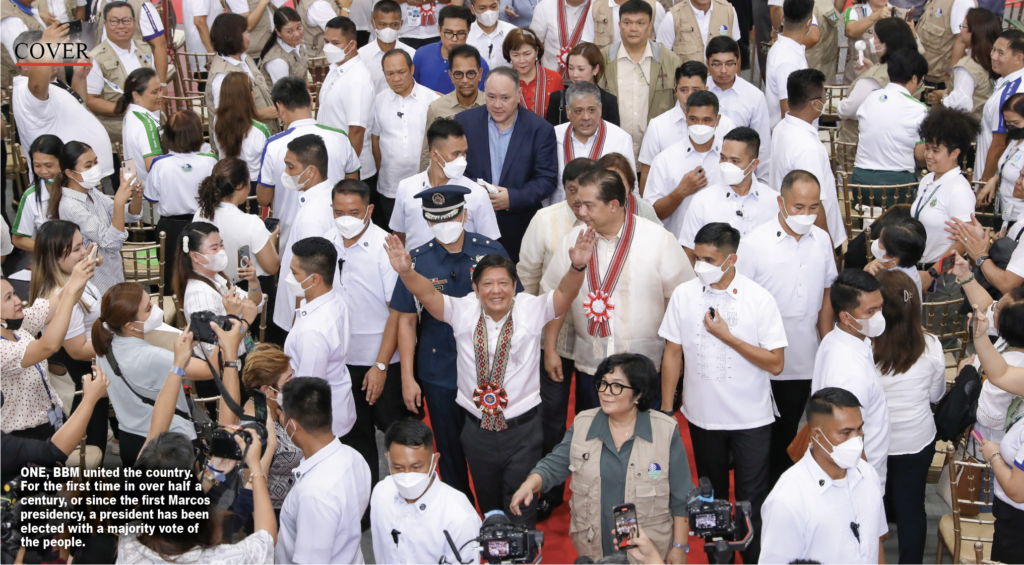
There are seven focus areas to remember about the presidency of Ferdinand “Bongbong” Romualdez Marcos Jr. 13 months after assuming the highest position in the land. These seven will define the Marcos II presidency over the next five years.
One, BBM united the country. For the first time in over half a century, or since the first Marcos presidency, a president has been elected with a majority vote of the people.
Except in holdout areas like Bicol and the western Visayas, BBM won by large majorities, garnering a whopping 31.6 million votes—the largest vote by any president and the largest margin ever by a winning president over his nearest opponent. BBM’s unity call has been resonant throughout the country.
Two, BBM reconnected the Philippines to the world. He has scaled down the pivot to China, strengthened ties to old ally the United States, dealt substantially with Europe, while maintaining close and solid relations with old partners Japan and the ASEAN. India should be the next target.
BBM is the most popular leader in the world today, with an approval rating, 82%, beating the over 76% of Narendra Modi of India. Basking in that popularity, BBM accordingly has embarked on record-breaking foreign trips—14 by the last count, or one trip per month on average.
Three, he is modernizing the economy, opening it up to new players, and easing the rules of engagement to allow for a more competitive business environment, one that promotes efficiencies, lowers costs, promotes quality of products and services, and is more inclusive.
Relatedly, the Philippine economy is one of the strongest, if not the strongest in the 10-nation ASEAN.
Quarterly, growth rate has been steady and firm—7.2% in the third quarter 2022, 7.1% in the fourth quarter 2022, and 6.4% in the first quarter 2023. Compare those figures with the 20-year GDP average growth of 5.9% and you will see the difference.
The government, the Asian Development Bank and the World Bank all see GDP growth this year averaging 6% and higher in the coming years.
The economy must produce 7% growth per year to enable the Philippines to reach high middle income status of $4,500 per capita by the end of the Marcos II presidency.
Most importantly, in financing the economic growth, for the first time, an administration is pooling state funds, earnings and savings in a meaningful way, thru the Maharlika Investment Fund.
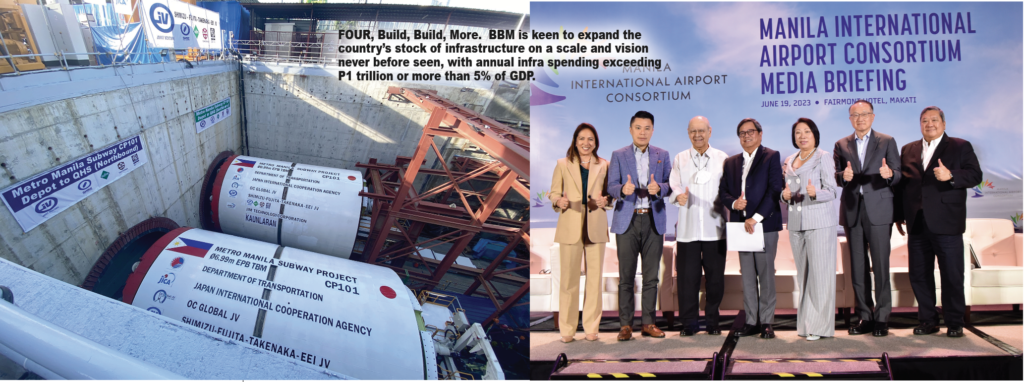
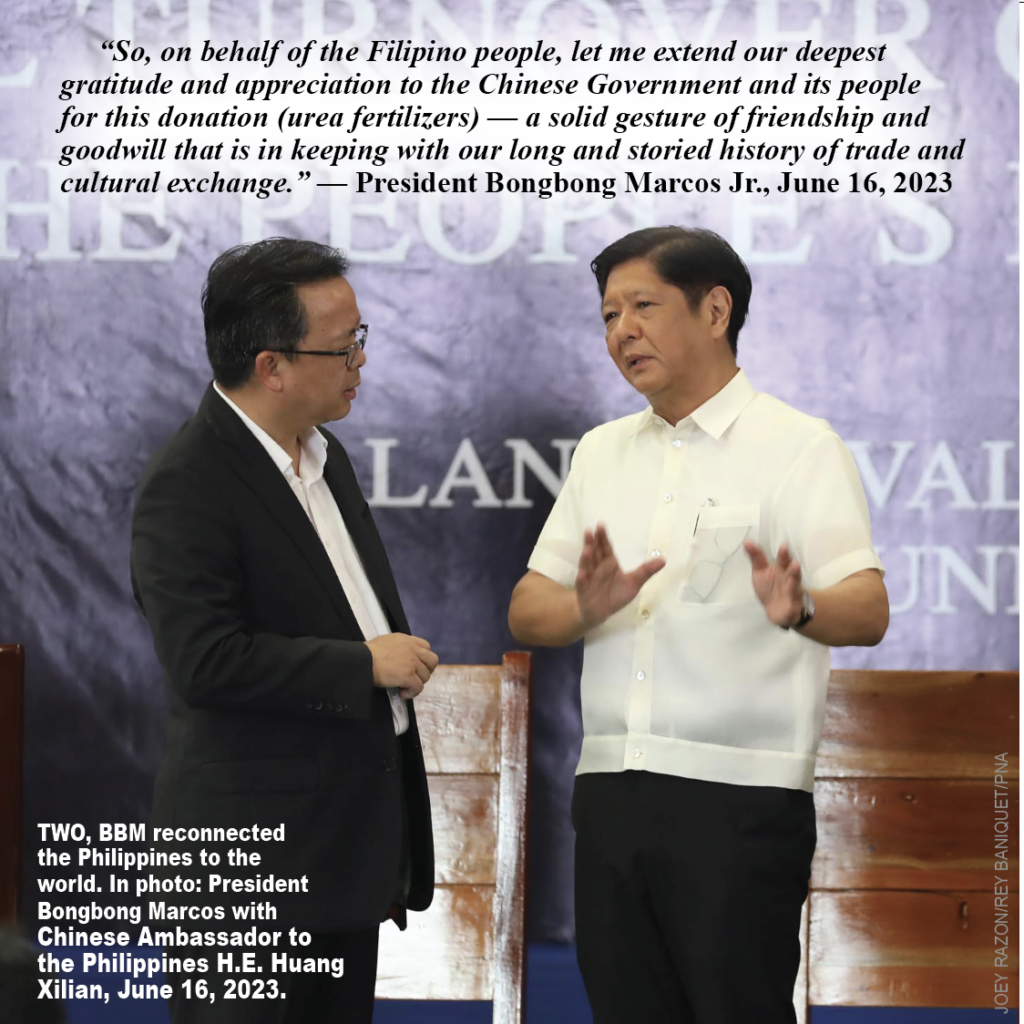
According to Joey Salceda, there is immediate interest in investing among major funds such as Temasek, Japan Bank for International Cooperation in the first sovereign wealth fund of the Philippines.
The Bureau of Treasury, which heads drafting of IRR, has expressed openness to allowing strategic partners from the start through IRR provisions – reducing the needed government capital infusion.
Listing in stock exchange will happen down the line, Salceda predicts, thus unlocking awesome financial values.
Four, Build, Build, More. BBM is keen to expand the country’s stock of infrastructure on a scale and vision never before seen, with annual infra spending exceeding P1 trillion or more than 5% of GDP.
Total infra spending in six years of BBM—P9 trillion, double the P4.5 trillion of President Duterte. BBM’s father, Ferdinand Marcos Sr., built more infra than all the previous presidents before him.
For the first time in history, Metro Manila will have more airports than it probably needs in the next half century—a rehabilitated Manila International Airport or NAIA, a new Manila International Airport in Bulacan by San Miguel Corporation, Sangley Airport by the Henry Sy family, and the government-built Clark International Airport that is now run by the Gokongwei and Aboitiz families.
Five, BBM has completed the emancipation of agrarian reform farmers. Marcos I freed farmers from centuries of bondage to the land they never had hope before of owning. Marcos II completes that emancipation by freeing agrarian reform farmers from P58 billion of unpaid debts.
According to Albay Rep. Joey Salceda, the New Agrarian Emancipation Act condones P58.125 billion, benefiting 654,000 agrarian reform beneficiaries and involving a total of 1.18 million hectares of awarded lands. With estate tax amnesty until 2025, and LGUs encouraged to do RPT amnesty.
Also, some 52,000 hectares of unused government lands will be distributed to farmers.
Six, BBM is keen on climate change adaptation and mitigation. He knows fully well that the Philippines is among the top three countries to be harmed by a climate gone berserk.Seven, digitalization is the new mantra. It is the gateway to genuine inclusion
Seven, digitalization is the new mantra. It is the gateway to genuine inclusion.
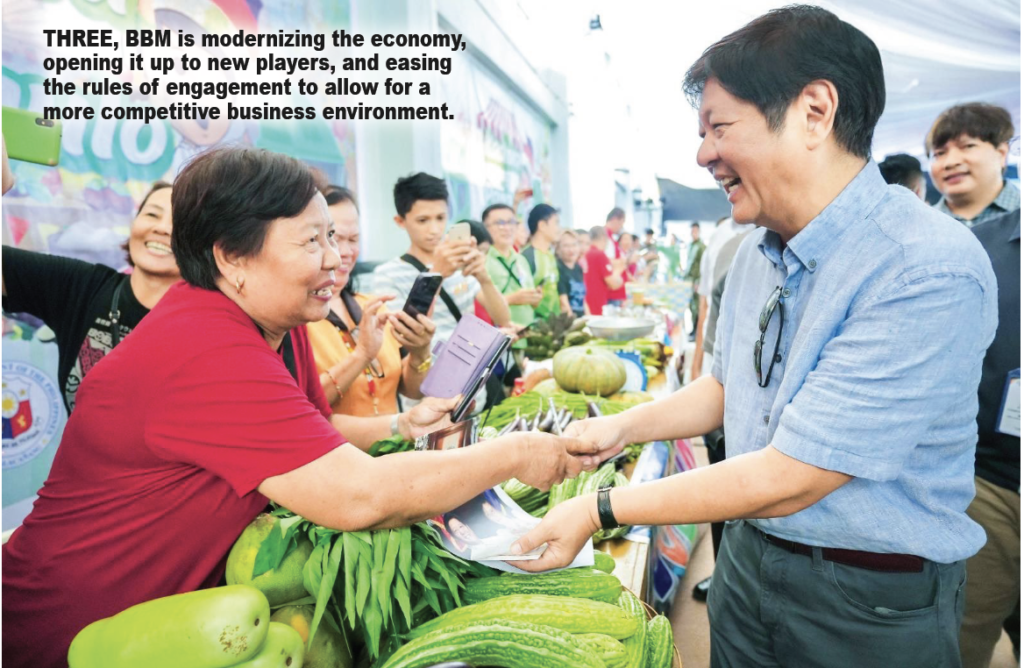
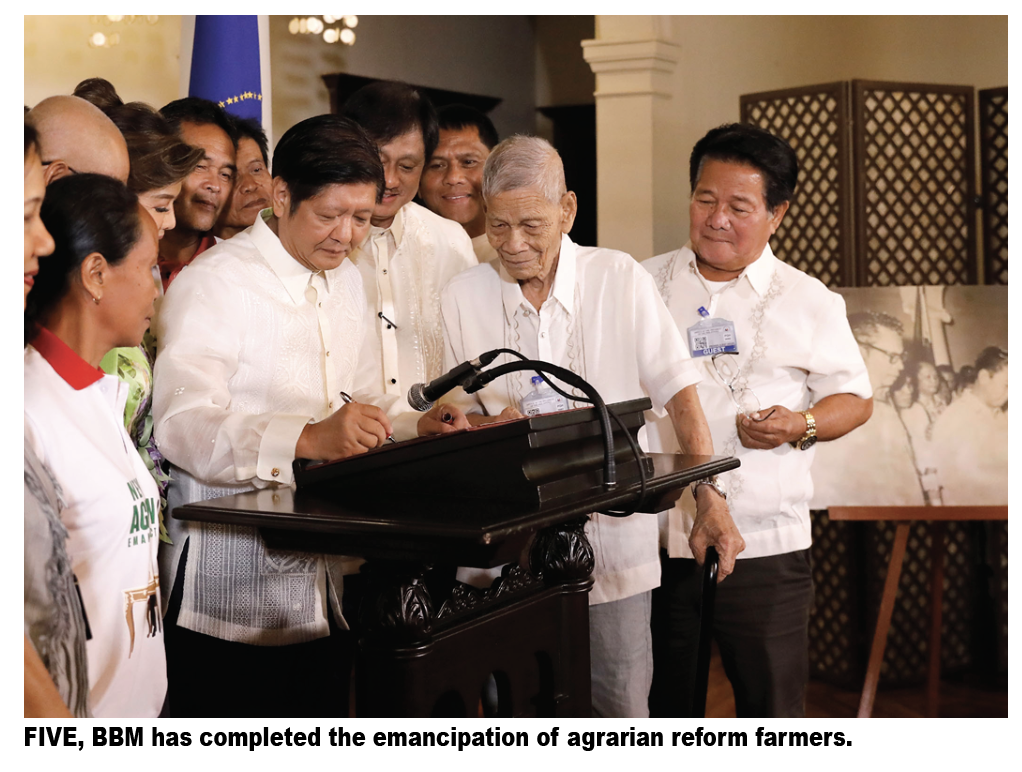
As to worries about so-called P14 trillion Philippine debt, Salceda says debt is actually under control. Both the US and Singapore have more debts to GDP (exceeding 100%) than the Philippines (63% of GDP).
Assures Salceda: “Debt figures have remained in line with the Medium-Term Fiscal Framework, although the change in external debt has nearly equaled change in domestic debt, highly unusual, due to Fed rate hikes and the depreciation of the peso versus the dollar.”
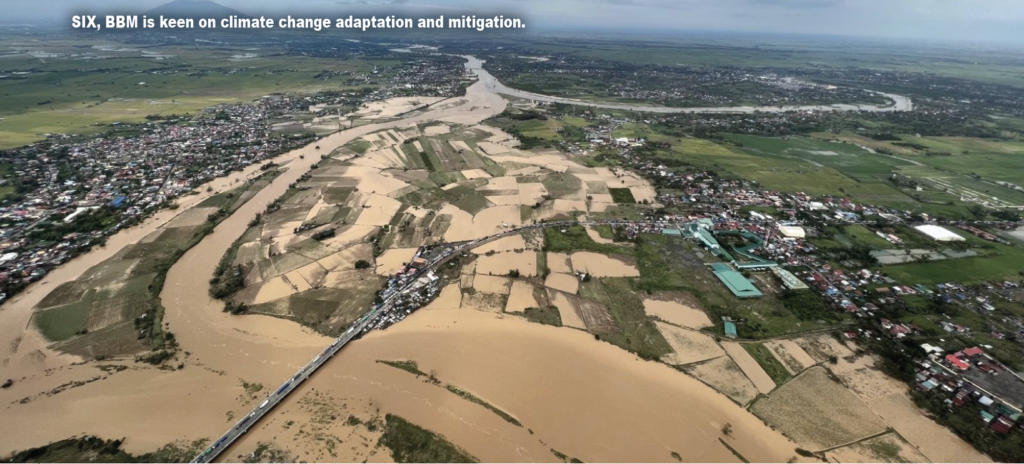
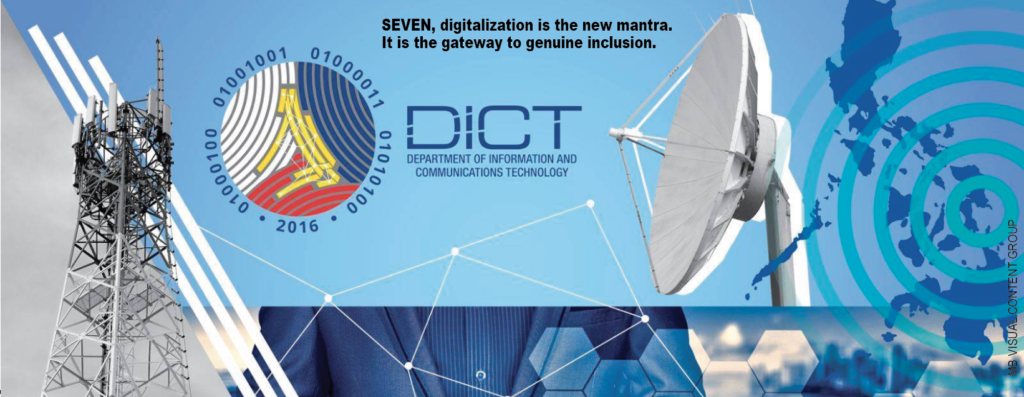
Finally, Salceda offers insights (from Wharton) on what makes a president great:
1. History rewards the risk-takers
2. A president who actively campaigns for his historical place is engaged in a self-defeating exercise.
3. There is no single theory of presidential success.
4. Presidents can only be understood within the context, conventions and limitations of their time.
5. If presidents are governed by any law beyond the Constitution, it is the law of unintended consequences.
6. Presidential power, although awesome on paper, is based largely on moral authority
7. The president requires a talent for making useful enemies.
8. Every great president marches to the beat of his own drum
9. The challenge posed by any crisis is equaled by the opportunity for leaders to forge an emotional bond with the people they lead to gain moral authority and expanded powers.
10. Greatness, like beauty, is in the eye of the beholder.
